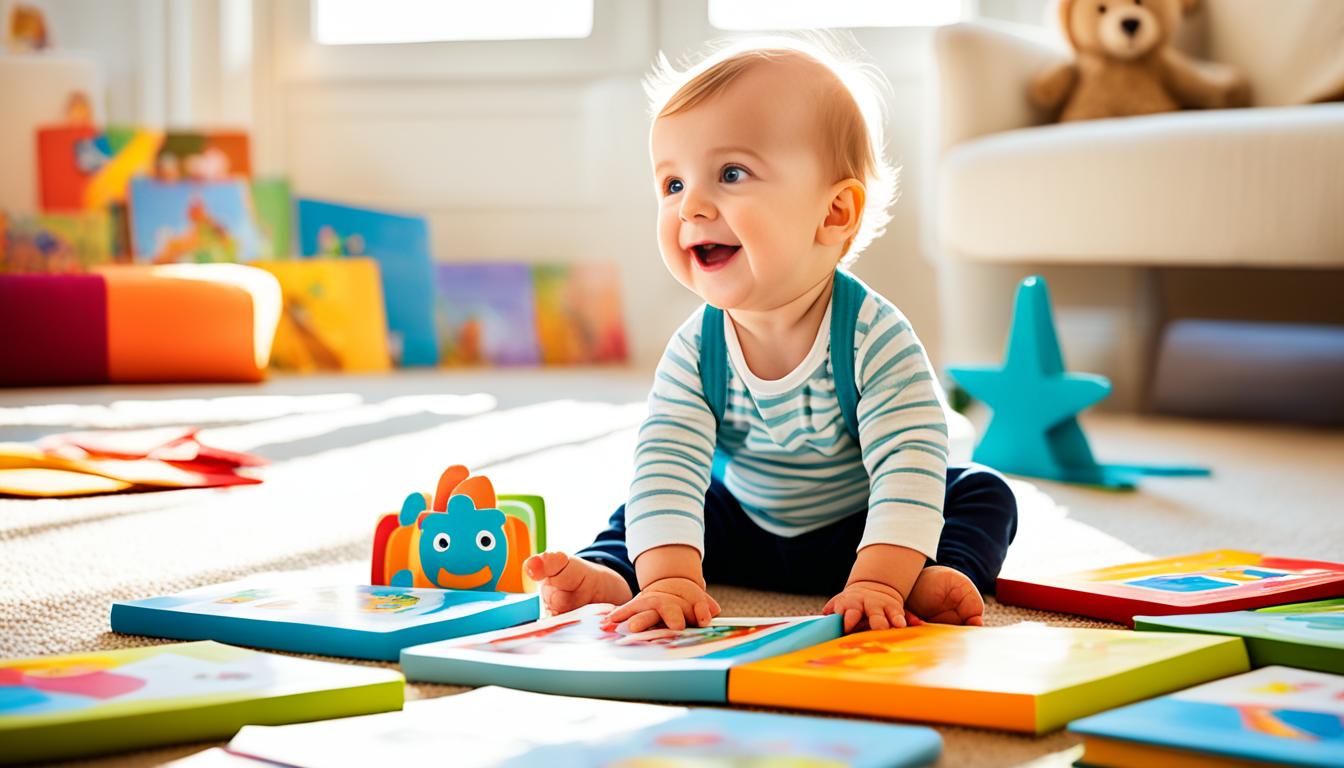Your baby’s brain develops rapidly through sensory exploration, caregiver interactions, and a nurturing environment. By engaging their senses with touch, sounds, and sights, you help form essential neural connections. Talking, playing, and responding to their efforts strengthen their understanding and emotional security. Providing safe, interesting objects encourages curiosity and confidence. Every interaction sparks learning, fostering their natural growth. If you want to discover more ways to support their incredible development, keep exploring these essential strategies.
Key Takeaways
- Infants’ brains develop rapidly through neural connections formed via sensory exploration and caregiver interactions.
- Sensory experiences (touch, taste, sight, sound, smell) are essential for building foundational neural pathways.
- Responsive caregiver engagement provides context, meaning, and emotional security that supports learning.
- Curiosity and safe exploration foster brain growth by encouraging infants to experiment with their environment.
- An enriched, nurturing environment with varied sensory objects enhances rapid learning and cognitive development.

Have you ever wondered how babies pick up new skills so quickly? It’s fascinating to watch your little one explore the world around them, seemingly eager to learn every detail. This rapid learning process happens because your baby’s brain is incredibly adaptable, especially during those first few years. One of the main ways they do this is through sensory exploration. When your baby touches, tastes, hears, sees, and smells, they’re stimulating their developing brain, creating essential connections that serve as the foundation for future skills. For example, when they grasp your finger or squeeze a soft toy, they’re not just having fun—they’re strengthening their fine motor skills and understanding of their environment. Engaging their senses helps them make sense of the world, turning abstract experiences into concrete knowledge.
Caregiver interactions play a pivotal role in boosting this sensory exploration. When you talk to your baby, make eye contact, and respond to their babbles and gestures, you’re doing more than just bonding—you’re actively shaping their neural pathways. These interactions provide context and meaning to their sensory experiences, guiding them to associate sounds with objects and emotions. For instance, naming objects during play helps your baby connect words with their sensory perceptions. Your reactions also teach them about social cues and emotional responses, laying the groundwork for communication and empathy. The more engaged and responsive you are, the more your baby feels secure and motivated to explore. They learn that their environment is safe and full of opportunities for discovery.
As your baby’s senses develop, so does their curiosity. This curiosity drives them to reach for new things, explore different textures, and listen to a variety of sounds. It’s a natural process, but it can be enhanced by your active involvement. Providing a variety of safe objects for sensory exploration—like different fabrics, rattles, or musical toys—encourages them to experiment and learn. Your interactions should be responsive, encouraging their efforts and celebrating their discoveries. This positive reinforcement builds confidence and keeps their motivation high. Remember, every touch, sound, and interaction is an opportunity for your baby to develop essential skills. By understanding the importance of sensory exploration paired with caregiver interactions, you can create a rich environment that nurtures their incredible capacity for learning.
Conclusion
Remember, a baby’s mind is like a sponge, soaking up every experience. As you nurture their curiosity and provide a loving environment, you’re helping their brain grow stronger each day. Be patient and consistent, because “Rome wasn’t built in a day.” Your support and understanding lay the foundation for their lifelong learning. Trust the process, and know that every moment you spend with your little one is shaping their incredible future.









